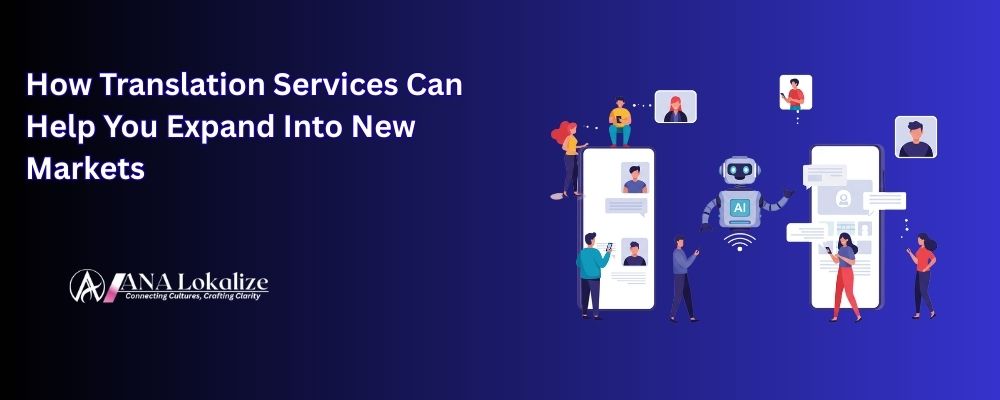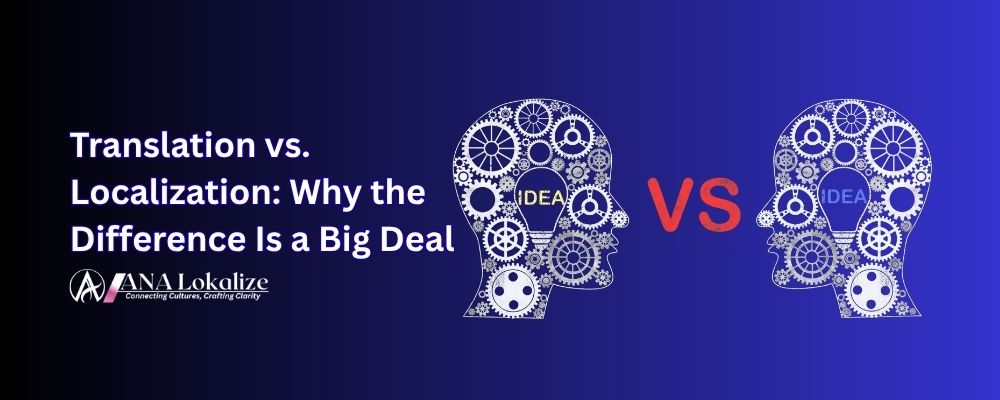1. The Language of Growth: Why Translation Matters
Language is at the heart of any business transaction. Whether it is a product description on an e-commerce site or a customer support email, clear communication builds trust. According to multiple studies, consumers are far more likely to buy from a company that provides information in their native language.
Expanding into a new market without professional translation can lead to:
Misunderstandings about product usage or features.
Misinterpretation of brand messages.
Legal risks due to incorrectly translated contracts or terms.
A loss of credibility and trust.
On the other hand, investing in translation services demonstrates respect for local cultures, helping businesses position themselves as global brands with local relevance.
2. Translation as a Gateway to Market Entry
When entering new markets, businesses face challenges such as cultural barriers, regulatory requirements, and consumer skepticism. Translation services help overcome these obstacles in several ways:
Website & App Localization: A translated website adapted to local culture (including currency, date formats, and idioms) increases engagement and conversion rates.
Marketing Campaigns: Translating slogans, advertisements, and social media content ensures that messages resonate emotionally with local audiences.
Legal Compliance: Contracts, privacy policies, and product documentation must be accurately translated to meet local regulations and avoid costly disputes.
Customer Support: Offering multilingual support via email, chat, or call centers strengthens customer loyalty.
Without these measures, even the most promising expansion can fail due to cultural disconnects.
3. Building Trust Through Localized Communication
Trust is the foundation of business growth. Translation services allow companies to present themselves as credible, professional, and customer-focused. For instance:
E-commerce: Customers are more likely to complete purchases if product details, warranties, and return policies are available in their native language.
Finance & Fintech: Banks, insurance providers, and fintech companies rely heavily on precise translations of policies, contracts, and customer communications.
Healthcare & Pharma: Clear translations of medical information ensure patient safety and regulatory compliance in new regions.
By speaking the customer’s language, businesses demonstrate commitment and reliability, making customers feel valued.
4. Cultural Nuances and Brand Perception
Translation is not simply about converting words—it is about localization. A literal translation may sound awkward or even offensive in another culture. Professional translators understand cultural subtleties and adapt messages accordingly.
For example, a tagline that works well in English may not carry the same meaning in Chinese or Arabic. Similarly, colors, images, or humor in marketing campaigns may need adjustment to align with local sensibilities.
Companies that invest in culturally sensitive translations avoid embarrassing mistakes and build stronger brand identities in new markets.
5. Competitive Advantage in Global Markets
In competitive industries, translation can become a strategic advantage. Businesses that offer multilingual services gain access to a wider audience than those limited to a single language. This is especially important in sectors such as:
Technology & SaaS: Software providers must translate interfaces, documentation, and tutorials to scale globally.
Tourism & Hospitality: Hotels, airlines, and travel platforms thrive by offering multilingual booking experiences.
Education & E-Learning: Online courses and educational platforms must translate content to attract global learners.
By tailoring communication to each market, businesses not only expand their reach but also differentiate themselves from competitors who overlook localization.
6. Reducing Risks with Accurate Translations
Global expansion comes with risks, particularly in legal and regulatory compliance. Misinterpreted terms can lead to lawsuits, fines, or reputational damage. Translation services mitigate these risks by:
Providing certified translations for contracts, patents, and compliance documents.
Ensuring that product manuals and safety instructions are accurate, preventing liability issues.
Translating financial records and tax documents in compliance with international standards.
By reducing legal and operational risks, businesses can focus on growth without costly setbacks.
7. Translation and Digital Transformation
The digital revolution has accelerated global expansion. Businesses rely on websites, mobile apps, and social media to reach international customers. Translation plays a vital role in this transformation:
SEO Localization: Translating keywords and adapting content boosts visibility on local search engines.
Social Media Campaigns: Multilingual content increases engagement across diverse audiences.
E-commerce Marketplaces: Platforms like Amazon, Alibaba, and Shopify thrive on accurate multilingual product listings.
Digital expansion without translation leaves businesses invisible to local customers who search and shop in their own languages.
8. The Role of Technology in Translation
Technology is transforming translation services through tools like AI-powered translation, translation memory systems, and cloud platforms. These tools improve efficiency, maintain consistency, and reduce costs. However, human expertise remains indispensable for ensuring accuracy, cultural sensitivity, and emotional resonance.
The best practice is a hybrid model—leveraging technology for speed while relying on professional translators for quality. This balance allows businesses to scale while preserving brand integrity.
9. Case Studies: Success Through Translation
Airbnb: Localized its platform into dozens of languages, enabling travelers worldwide to book accommodations seamlessly.
Coca-Cola: Tailors campaigns to each market with region-specific translations and cultural references.
Netflix: Offers multilingual subtitles and dubbing, which has been crucial to its global subscriber growth.
These examples show that translation is not just a support service but a core growth driver for global brands.
10. Best Practices for Businesses Using Translation Services
To maximize the impact of translation in global expansion, businesses should:
Partner with Professional Translators: Prioritize accuracy and cultural sensitivity over cost-cutting.
Invest in Localization, Not Just Translation: Adapt content to reflect cultural values and customer behavior.
Plan Early: Incorporate translation into market entry strategies from the beginning, not as an afterthought.
Maintain Consistency: Use translation glossaries and style guides to ensure uniform messaging.
Leverage Technology: Use translation management systems for scalability while retaining human oversight.
Conclusion
Expanding into new markets is a complex journey that requires more than logistics and strategy—it requires effective communication across languages and cultures. Professional translation services enable businesses to connect with customers, comply with regulations, and build lasting trust.
By investing in accurate and culturally sensitive translations, businesses can avoid costly missteps, gain a competitive edge, and unlock new growth opportunities worldwide. In essence, translation is not just about words—it is about creating bridges to new markets and turning global potential into sustainable success.




